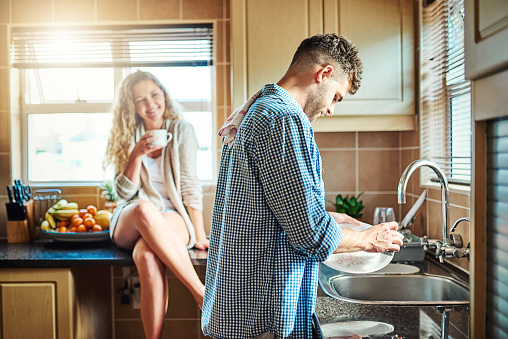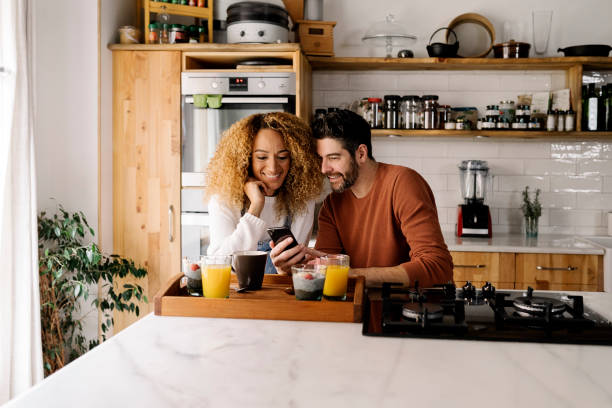You see the empty aisles at Target or Costco.
You feel like you found gold if you can get your hands on some toilet paper, water, or hand sanitizer.
You start to panic when schools are closed until May 5th and Los Angeles is under “safer at home” policy.
On March 11, 2020, the World Health Organization has declared COVID-19 a pandemic. However, we now know that the Coronavirus is not only a physical health issue; but also a mental health one.
Things are changing rapidly. There are a lot of unknowns and uncertainty that feeds into anxiety and fear. We are seeing more panic, feeling out of control, and stress. There is also fear of job and financial insecurity that is leading to financial problems. There is more restlessness, poor sleep, fatigue, and irritability. Mindsets are switching from the living to the survival mode. If you have a pre-existing mental health condition, the quarantine can make it more challenging. For example, if you are struggling with depression, isolation and social distancing can trigger excessive sleep and feelings of loneliness. If you are struggling with contamination OCD, washing your hands to stay clean and safe can trigger past compulsions.
Now more than ever we need to care for our emotional and mental well being to ride this experience with least amount of impact. In times like these, you need practical, actionable ways of coping with stress, fear, and anxiety to stay balanced, calm, and sane in the midst of this pandemic.

Here are 3 tools to manage the COVID-19 anxiety:
1) Set limits: There is an update about the Coronavirus by the hour. You receive even the most minor update via your phone, email or text. You do not have to follow every Instagram post, article, or news update about it. Choose one outlet that you trust and check it once a day for 15-minutes. Make sure to also set limits with others! It does not have to be the center of attention in every conversation. If you are feeling overwhelmed or anxious, let others know. By using your assertive communication skills, express to others know your needs, “I know this is on your mind, but I really like to talk about something else.”
2) Follow the CDC guidelines with limits: Don’t go above and beyond! Yes, wash your hands, do not touch your face, maintain social distance with no handshakes, and cover your cough. But the truth is, we were expected to keep these guidelines in mind every flu season or when we are feeling under the weather. Remember, these are common guidelines, not special ones. Whenever we engage in activities excessively, it feeds into the anxiety, panic, and fear. Do your best to follow the guidelines and continue to live your life.
3) Use your Coping skills: It’s normal to feel sad, stressed, confused, scared or angry during a crisis. There is a lot of unknown that increases panic. But the truth is you have been through tough times before. You can draw on skills you have used in the past that have helped to manage previous life adversities ad use those skills to help you manage your emotions during the challenging time of this outbreak. Use your coping skills such as journaling meditation, tolerating the discomfort, exercising, avoiding catastrophic thinking. It is important to accept some level of uncertainty. The coronavirus is a real threat and the uncertainty feeds the anxiety. You can continue to focus on things that are in your control. You are in charge of your positive attitude and mindset, as well as your daily schedule, eating habits, physical exercise, and being creative. However, you are not in control of predicting how long this will take, other people’s actions, and the amount of toilet paper in the store.

In addition, Meditation and mindfulness is valuable in adding some calmness even if it does not solve all the problems. Here is how:
1) Be Mindful of the task at hand: You have been told 100 times already that hand washing is an important part of guidelines. However, while washing your hands, anxiety may keep talking and saying “I have to wash them really good,” “ugh I wonder how dirty my hands have been,” “where did I touch my hands,” “did I wash them right,” “are they clean enough?” or “maybe I should do it again?” These anxious thoughts make hand-washing go from helpful tool to one you dread.
Use mindfulness by paying attention to the experience of washing your hands. Mindfulness is about “being in the moment” and “being present.” Use all your senses to pay attention to the experience of washing your hands. Listen to the sounds of the water coming from the faucet as it hits your sink. Notice the softness of the soap in your hand. Smell the soap if there is a scent. Take a minute to massage your hands as you rub the soap around it.
2) Build a Self-kindness statement: When feeling anxious, our minds ten to become over-critical, over-analyzing, and seeking perfection. You can over-analyze every sensation and constantly review every person or an object you touched. You almost become overwhelmed by the urge to touch your face simply because you have been told not to. Dr. Kristen Neff suggests self-compassionate dialogues to remain present and non-judgmental. Here is a sample script: I am frustrated with all the unknowns and feel out of control (mindful awareness of feelings). I have to remember that I am not alone and the whole world is fighting the same battle (the common humanity). I am doing my best to keep myself and my loved ones safe, I am going to give myself permission to do something that helps me feel grounded and connected (self-kindness)
3) Loving kindness meditation: While breathing deeply, begin practicing self-compassionate and self-loving phrases, such as “May I be well, May I be healthy, May I be happy, May I be filled with loving kindness:
Lastly, there has been more stress on children and the parents. Parents are working from home while also caring for their children since the closure of the schools. The family’s daily routines have changed drastically.
Most importantly, the parents need to remember that children turn to their parents at times of distress. It is important that parents model health stress response. Begin by talking to your child about what’s happening in a way he/she can understand. The fact is by now they all have heard the word virus, coronavirus, or COVID-19. It is not true that they will worry more if you were to have a talk about it. Keep it simple and optimistic. Give your child a chance to express his/her worries, and address questions as many times as necessary. Use age-appropriate language and do not offer more information than they ask. Be honest “we are going to be home for a little while and you will probably get bored” while also be proactive, “this is great time for us to do things we haven’t done.” Let your child know you’ll do everything possible to keep her/him and the family safe, “I know this is scary but it’s my job to do the worrying. Give your child a sense of control by teaching her/him how to properly wash hands, and refrain from touching face/nose/mouth.
It is also important to create some healthy schedule in the home. We are not striving for perfectionism but staying in pajamas all day and having screen time won’t help. Create a visual schedule, preferably one similar to their school schedule that includes activities such as enrichment, academic, music, art, and physical exercise. Make sure to include quiet time and have everyone be involved in taking care of the house. There are online resource for virtual dance classes, virtual music classes, yoga for kids. You have a picnic in the living room or a move screening. Let them get some fresh air even if it is just in the front yard. Adhering to strict screen limits can create extra stress, consider temporarily loosening the rules to protect your sanity and your family’s well being.
We are stronger together because we are in this together
Hope we become better for each other because of the worst.
May we all be healthy.
May we all be safe.
May we all be happy.





